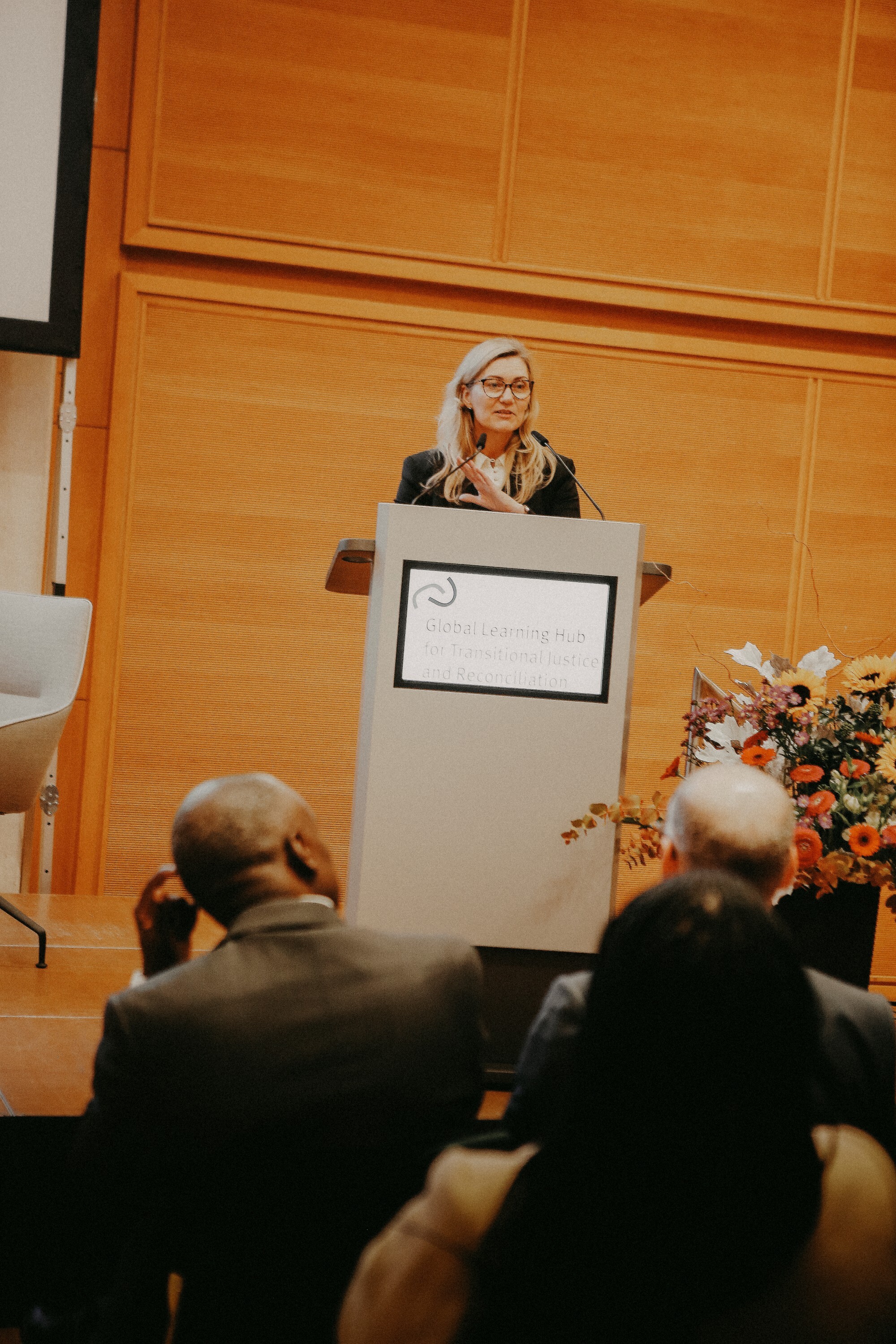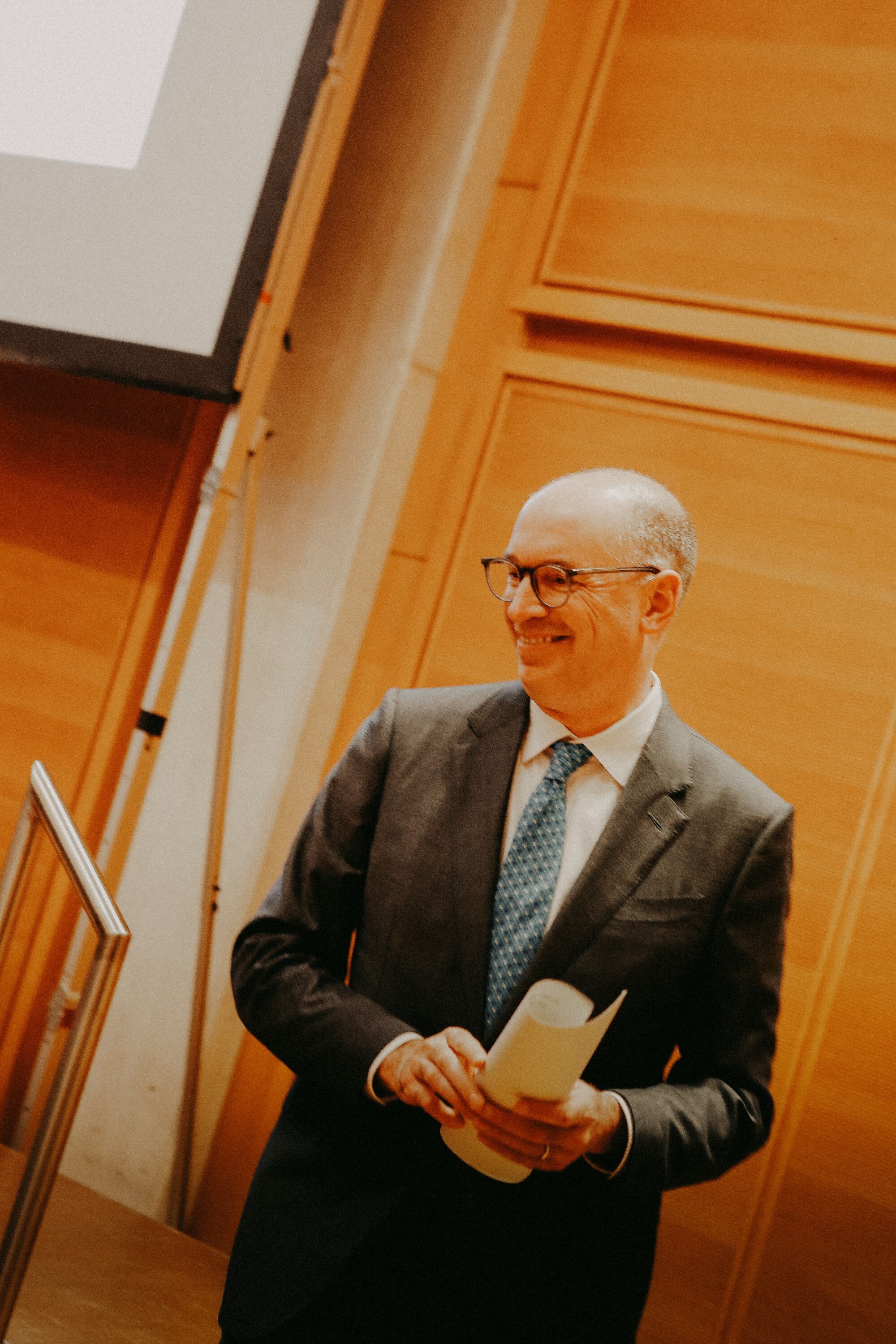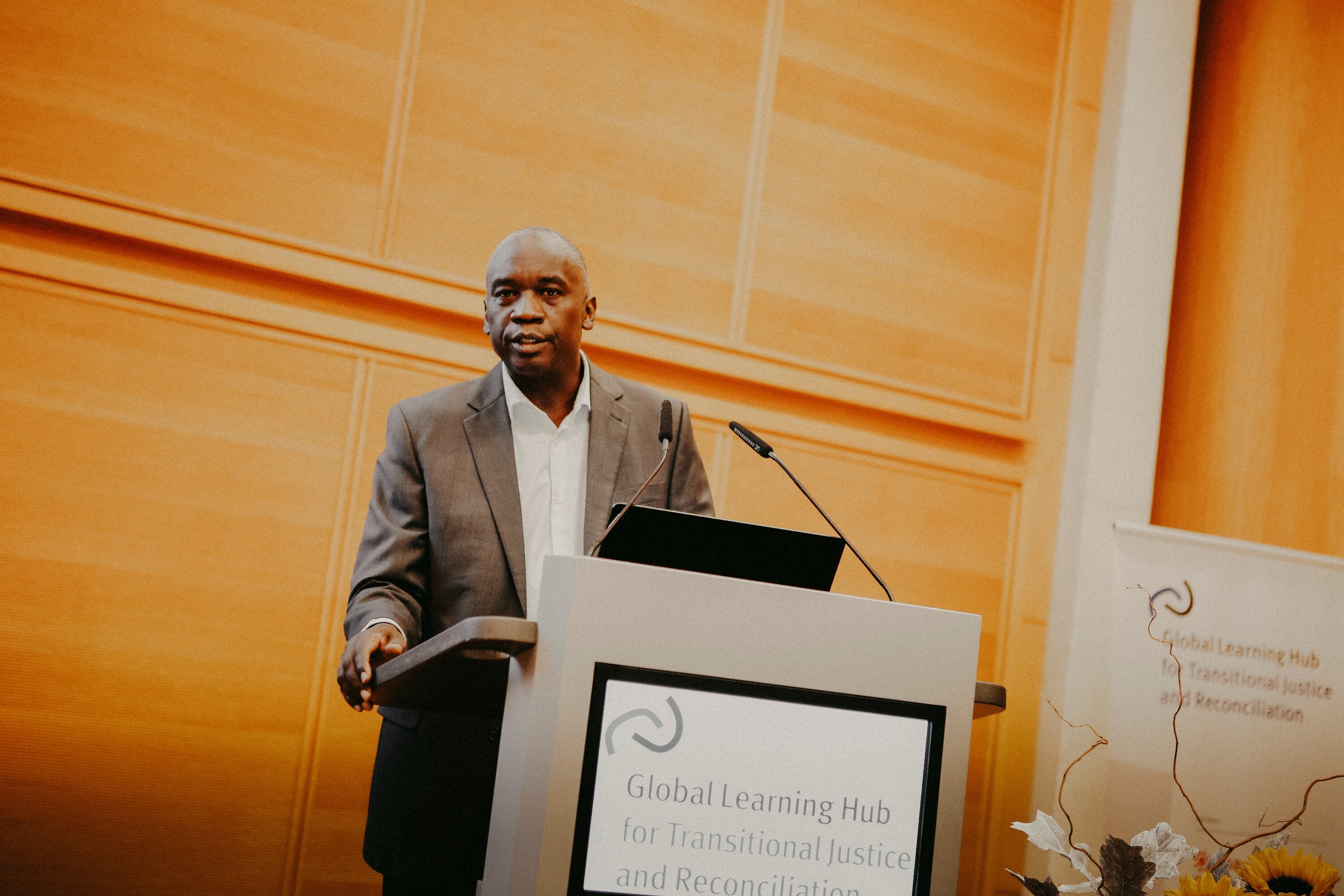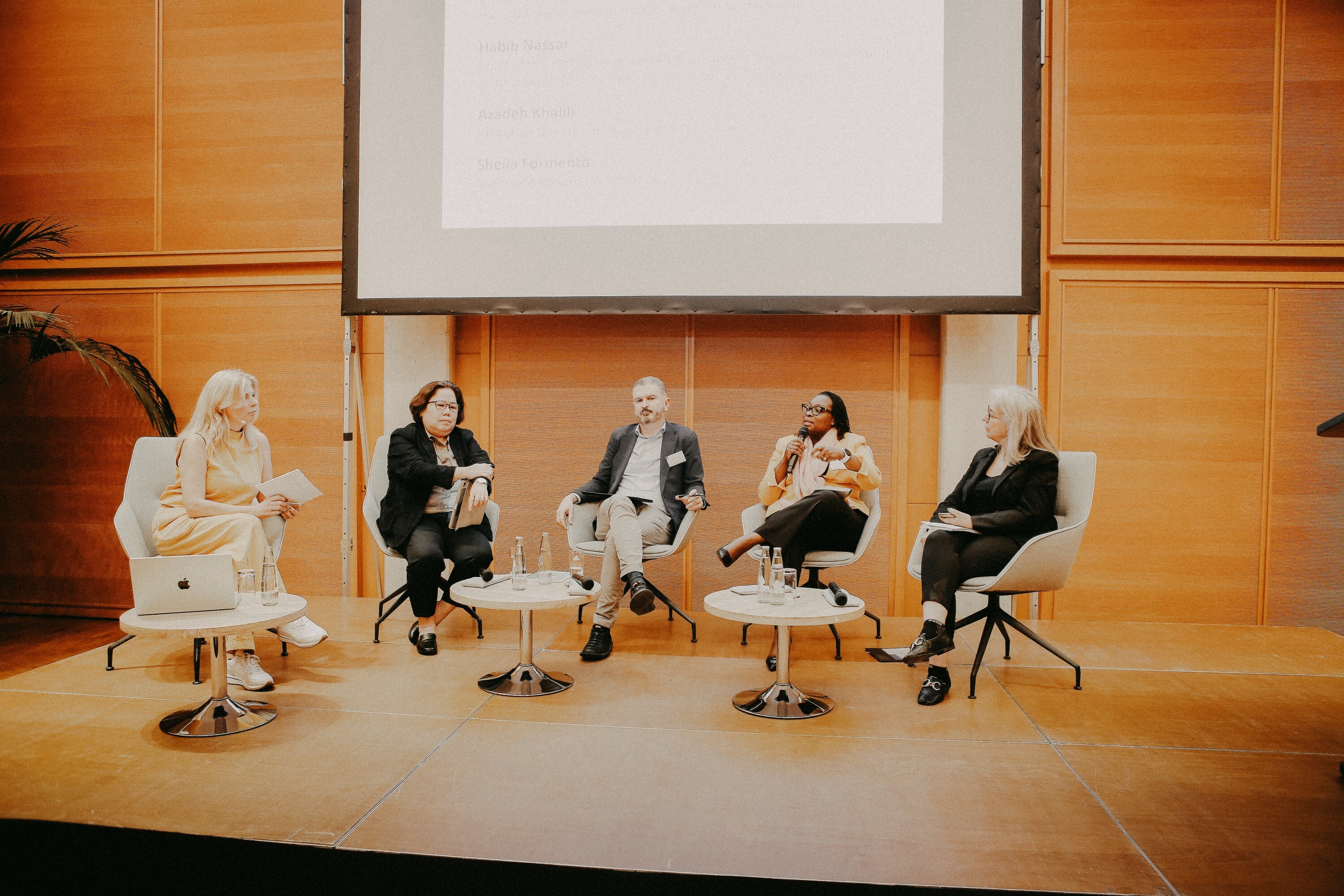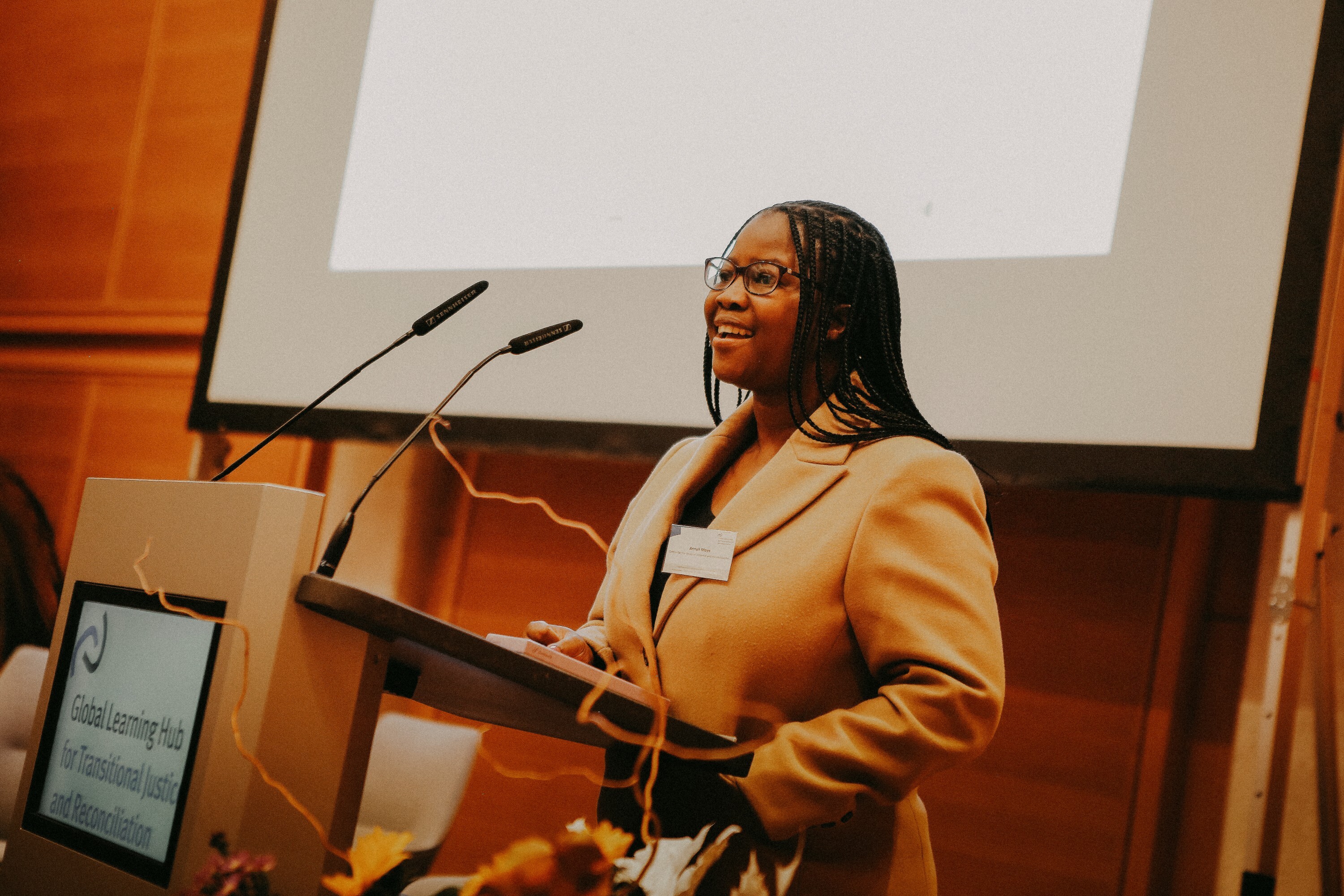NEWS | 6 Nov 2025
From transition to transformation
Rethinking transitional justice in challenging circumstances

At our event, policymakers and practitioners discussed how transitional justice must adapt its strategies to ensure more transformative impacts in uncertain times.
Transitional justice brings hope to local communities in today’s turbulent global environment, but it must evolve to remain effective. This was the central message of an evening event that underscored that transitional justice continues to provide essential pathways for transforming violent pasts into more peaceful and just futures, even as civil spaces shrink, authoritarianism rises, and funding becomes scarcer. To have a lasting effect, transitional justice must be context-specific and locally owned, while being built on coalitions and strong alliances to sustain momentum.
The event “A beacon of hope: Transitional justice in uncertain times” on 22 October 2025 in Berlin marked the finale of the two-day practitioners’ conference “Transformative Transitional Justice in Practice: Confronting Challenges, Recognising Successes”. The conference brought together around 80 practitioners from more than 40 countries to exchange practical experiences, identify common challenges, and co-create recommendations on transformative transitional justice. The event provided an opportunity to share conference insights with national and international policymakers as well as an engaged public audience.
Staying relevant in difficult times
Chris Coulter, Executive Director of the Berghof Foundation, reminded participants that transitional justice is not only about dealing with the past but also about “dealing with the future” and as such relevant for conflict transformation and peace. Referring to today’s uncertain global environment, State Secretary Niels Annen from the German Federal Ministry for Economic Cooperation and Development stressed that “transitional justice is more important than ever”. He emphasised that local approaches, grounded in the aspirations and voices of victims, are key to successful transitional justice and that there must be a shared responsibility of both civil society and governments, which requires trust and close collaboration.
In his keynote address, Barney Afako, member of the UN Commission on Human Rights in South Sudan, highlighted that at a time when the consensus around human rights and rules-based international order was eroding, it was crucial to strengthen linkages between transitional justice and other fields such as the Sustainable Development Goals and post-conflict reconstruction. He also called for the inclusion of non-traditional partners, including the private sector, in processes of dealing with the past.
In the following panel discussion, four practitioners shared insights into current challenges to transformative transitional justice and strategies to overcome them. Christine Alai (Utu Wetu Trust) reflected on the Kenyan experience of a stalled transitional justice process and civil society actors’ strategies to sustain action and advocate for structural reforms. She argued that it is crucial to harness the disruptive potential of social movements to regain momentum in contexts of political blockage. To be transformative, Sheila Grace Formento (Alternative Law Groups) stressed that transitional justice needs to resonate with local communities, ensuring that processes are not imposed but genuinely understood and owned. To her, this requires “decolonising” the language and concepts of transitional justice.
Habib Nassar (Independent Institution of Missing Persons in Syria) underlined the need to connect transitional justice with other policy fields, particularly development. “If you don’t integrate a transitional justice perspective in reconstruction and economic development you risk perpetuating violence,” he warned, pointing to the dangers of siloed approaches. Azadeh Khalili (Humanity in Action) highlighted the power of participatory planning process in achieving a joint transformative vision of the future. She also pointed to the need of engaging allies inside governmental structures by framing transitional justice issues in terms of broader social and economic benefits.
Expanding frontiers
In terms of recommendations the panel urged policymakers to ensure funding reaches local actors, noting that too much support from the global north remains in the global north. Panellists called for trust-based philanthropy to step up, with donors adapting their practices to empower rather than constrain local initiatives. Finally, they emphasised the importance of long-term commitment, arguing that adaptive public programming and enduring partnerships are crucial for sustaining transitional justice processes.
The evening concluded with closing words from Annah Moyo, Executive Director of the Centre for the Study of Violence and Reconciliation, who reminded the audience that transitional justice is a field that is constantly learning. She argued that now is the moment to expand its frontiers, moving decisively from transition to transformation.
